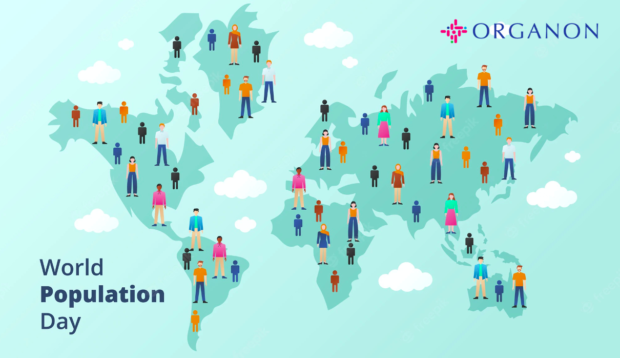Make it a plan to family plan this World Population Day
This month of July, World Population Day is being observed and celebrated, an annual event recognized and established by the United Nations Development Program. On this day, people give importance to global population trends and issues, in the hope that shedding light on these lesser known problems, that they can progress in finding solutions for them.
One of the most pressing population concerns is the rate at which it is growing – in a matter of just 11 years, the global population has increased by 1 billion. From 7 billion people in 2011, currently, the world is occupied by 8 billion people, who live, consume, and create daily. In an ideal world, people would have opportunities and provisions for all 8 million. However the food supply, healthcare, and job markets have not grown as quickly or developed as sustainably as the growing population. The truth is, inequality still exists, where race, class, disability, and gender can dictate the course of someone’s life.
But there are ways to curb inequality and slow the population growth. Family planning is an efficient and effective method, helping couples of all ages live within their means and manage their efforts at both work and home. It’s an empowering and educational practice that aids in striking an ideal balance, one that could work for all members of the family.
Family planning saves lives
But what exactly is family planning? Family Planning is information, means and methods that allow individuals to decide if and when to have children. By undergoing family planning, individuals have space to plan other considerations when raising their said family, such as the financial, social, and logistical implications starting any family requires.
Naturally, family planning revolves around reproductive concerns. These concerns can be addressed through two methods: natural family planning and artificial contraception. In natural family planning, women observe their bodies and watch out for fertility signals in their menstrual cycles that let them know when they are most likely to get pregnant. These include the Cervical Mucus Method, Basal Body Temperature, Symptothermal Method, Standard Days Method, Lactational Amenorrhea Method, the Calendar Method and abstinence.
On the other hand, artificial contraceptives are used to prevent unplanned pregnancy. These days, couples have a wealth of contraceptive options, including but not limited to pills, implants, intrauterine devices, surgical procedures that limit fertility, and barrier methods such as male and female condoms.
But a key component of family planning includes having that necessary conversation about the future – how many kids a couple would want, if they want kids at all, and at what ages or timelines to have them.
Due to its sensitive nature, family planning has not gotten enough attention in the educational and social systems. Unfortunately, this gap in knowledge severely affects families socially, economically, and emotionally, and more often than not, women bear the brunt of this burden.
An unplanned pregnancy can disrupt a woman’s plans. She may become temporarily physically limited and her priorities ultimately change. All aspects of a woman’s life are affected by pregnancy, and that’s why family planning is most beneficial and most empowering for women. When pregnancies are planned and plotted out, women can take charge of their health, save up and achieve economic independence, and work around their family’s needs all within a predetermined timeline. They can make sure they are fully ready to welcome a new member of the family with all the love and support they need. That’s why women should be empowered to make reproductive and family planning decisions for themselves. Their bodies, lives, autonomy, and future are at stake with every pregnancy.
Family planning thus becomes not just a topic of discussion, but an urgent need for all couples. Thankfully, with medical advancements and the progression of public health education, women and prospective parents can be sure to find the right family planning method for them – one that is comfortable and sustainable for the long-term.
Here for her health
As the pillar and primary caregiver of the family, women contend with many health issues throughout their lives. That’s why Organon, as a health solutions company, has committed itself to improving women’s healthcare. Happy, healthy women are the foundation of a happy, healthy society. When women are empowered with reliable, quality healthcare products for their bodies, everyone benefits. Organon has made a range of contraceptives to suit each woman’s comfort and preferences. From implants to birth control pills, Organon’s family planning and contraceptive range are a suitable complement to their other women-centered healthcare services, including their innovations in oncology and inflammatory diseases, as well as pharmaceuticals that help manage pain, dermatology, and cardiology issues.
It takes a village to raise a child – all the more, everyone should be prepared before taking on the journey. This World Population Day, people should remember and recognize the significance of each human life, and all the human sacrifice, love, and dedication it takes to sustain it.
ADVT.
